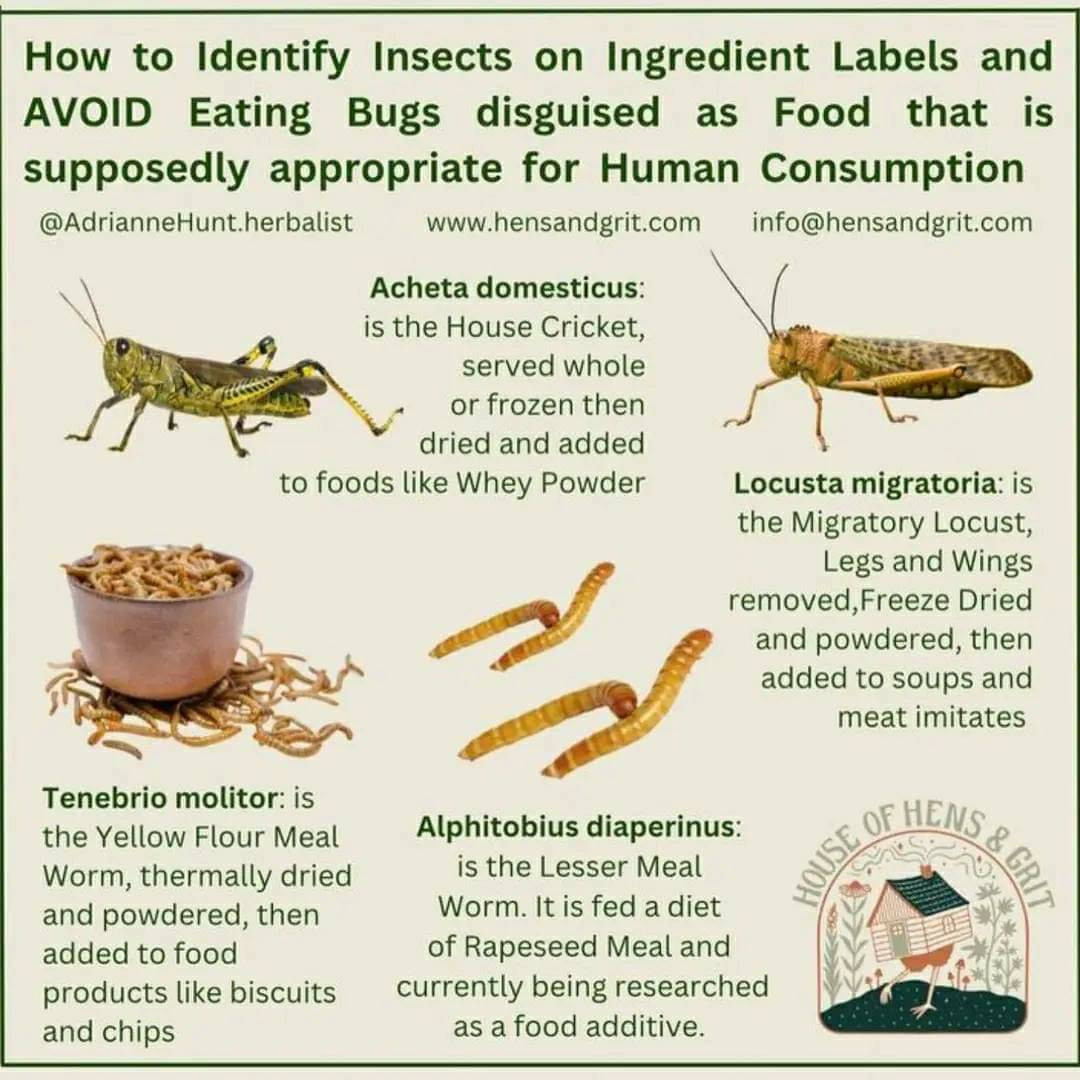BUYER BE AWARE:
We must truly keep up with the times and read the labels of food ingredients before feeding any processed foods to our families. Manufacturers are now allowed to add INSECTS to food products. They are using the Latin name of each insect on the Ingredient List, so it’s time to learn the Latin name of the currently approved Insects.
Other ingredients to look out for that did not make it onto the infograph:
E-120 Carmin (red bagrillo) is a mixture of cachengel worms. Carmine or E120 is referred to as a natural dye. But it’s not our typical natural dye derived from vegetables or fruits; instead, it’s something created from crushed insects. As an additive, it is derived from carminic acid which is a substance obtained from a few red-colored scale insects.
The World is changing and I'm on the Transition Team! Trump Won and even better God Wins ~ Once In A Lifetime
Dactylopius coccus (True cochineal) but it can also be Porphyrophora polonica (Polish cochineal), Porphyrophora hamelii (Armenian cochineal), and some others. To produce Carmine, the cochineal bugs are boiled in an ammonia or sodium carbonate solution. Then, what’s left of it is deprived of all the insoluble matter. Then, what’s left of that is treated with alum.
Substances like Citric Acid, Borax, Gelatin, or Stannous Chloride can also be used in the process to somewhat alter the outcome. To create one kilogram of Carmine, on average 155 000 insects are needed. The end-result (Carmine) is typically high in Aluminum content. They are considering this a NATURAL FOOD DYE.
E-904 SHELLAC is a waste product of worms. It is a resin secreted by the female lac bug, on trees in the forests of India and Thailand. It is processed and sold as dry flakes and dissolved in alcohol to make liquid shellac, which is used as a brush-on colorant and food glaze.
Blattodea = Cockroaches

